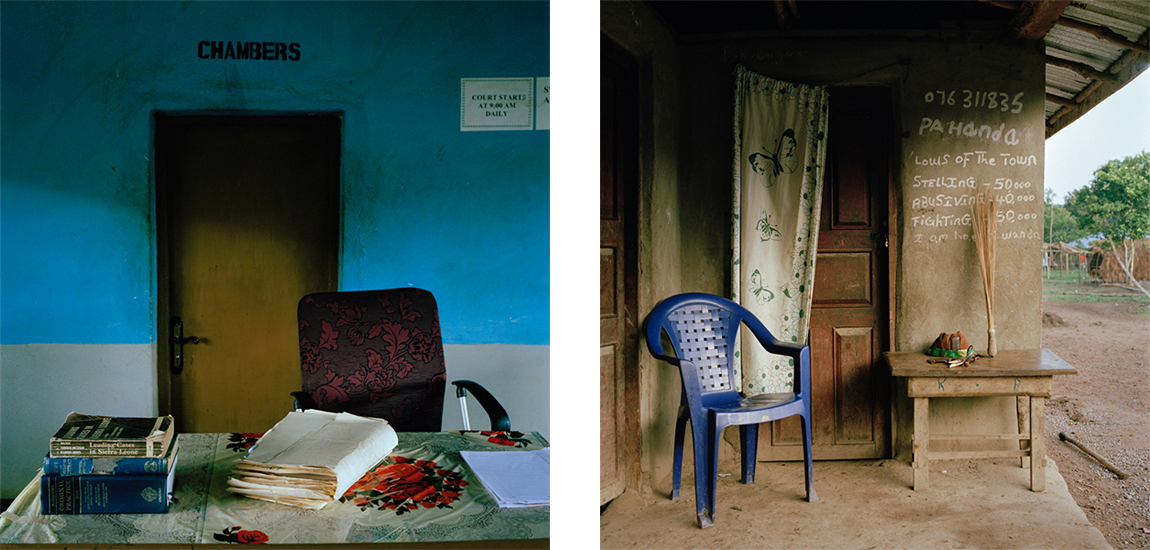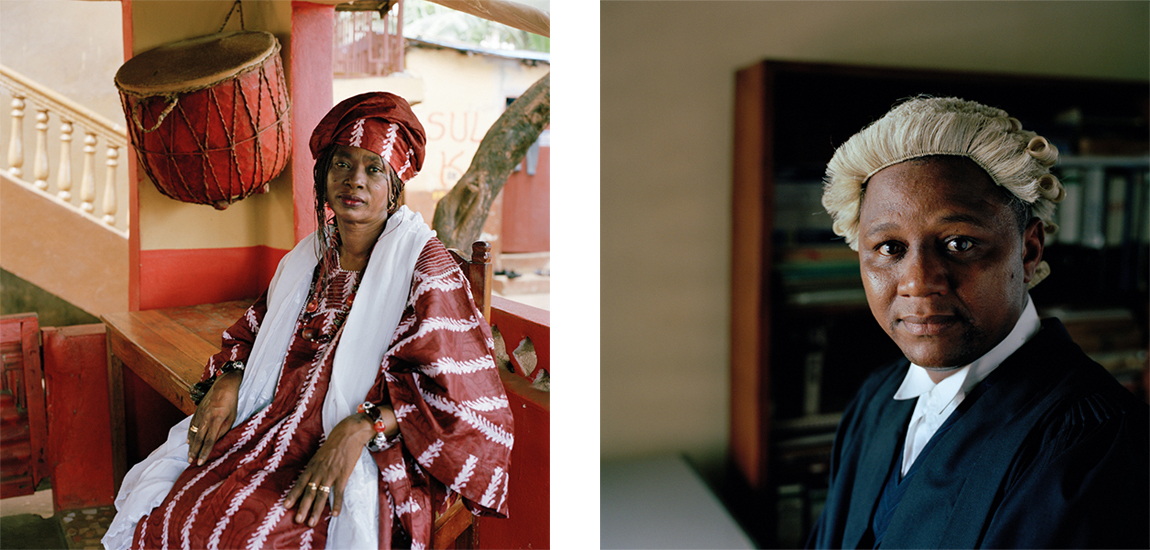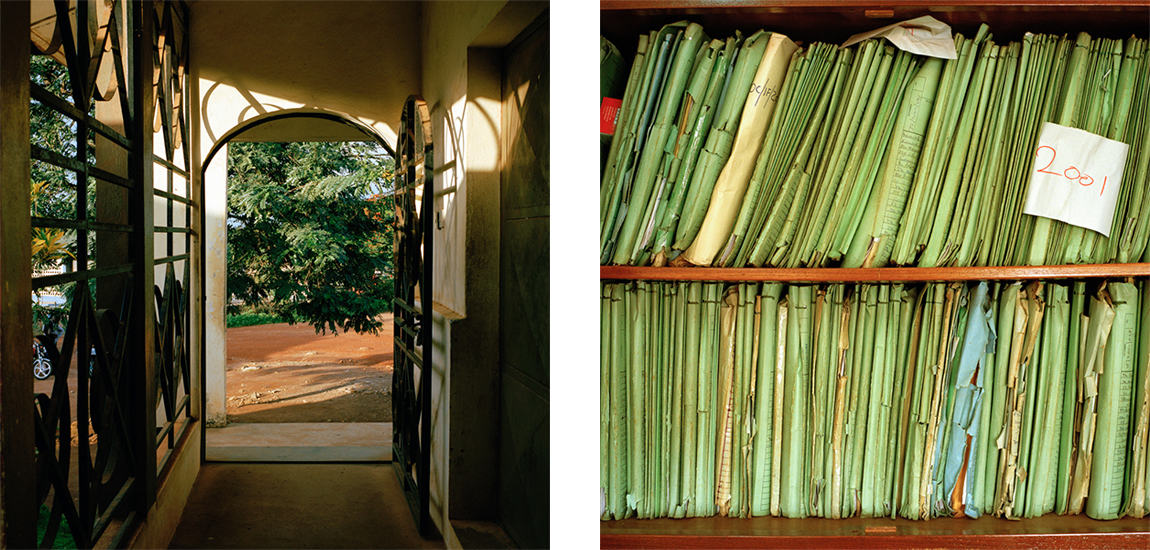For Open Studios Weekend Aubrey Wade in G11 will be showing new photographs from Sierra Leone that reflect on the places people turn toward when seeking justice in a pluralist legal system.
Aubrey has worked for almost a decade in the small west African country Sierra Leone since leaving London to live amongst the students at Fourah Bay University in Freetown in 2004. This experience at the start of his career, of living amongst young people experiencing the aftermath of war, negotiating relationships amidst significant imbalances of power, when organs of the state threaten rather than protect, has had a lasting influence on his interests and work.
Often employing an ethnographic approach Aubrey values field-based research, collaborative processes, and employing diverse means of storytelling. He particularly values the opportunities photography presents to connect with others – at times fleetingly, at times over the course of many years – through the interactions that come with making pictures.
For several years (2006 – 2011) he divided his home between Freetown and London. Whilst continuing to shoot personal work concerned with young people’s experiences in Sierra Leone’s early post-war years he worked throughout the continent on assignment for magazines and international NGOs, including the Guardian and Observer magazines, the London Independent Magazine, the Telegraph Magazine, the Sunday Times magazine, ‘D’ La Repulicca Della Donna, the Open Society Foundations, The IRC, Oxfam GB and Conciliation Resources.
Film projects include co-writing and producing Talking Borders, a fictional adaptation of long-term field research on conflict drivers in the Mano River border region of West Africa. The resulting film continues to be screened with facilitated community discussions in border communities in Liberia, Sierra Leone, and Guinea.
In his most recent work, for which he returned to Sierra Leone in 2013 to make a series of photographs that reflect on the places people turn toward when seeking justice in a pluralist legal system, he develops his interests in power and authority further. It also marks a shift toward making a quieter, more gentle image that invites you to enter the space and make your own connections.
He holds degrees in social anthropology from Sussex University and in photography from the University of the Arts London.
He lives in Hackney, London.
TOP PAIR
LEFT: Case files and reference books lay on the magistrate’s desk during a recess at the magistrate’s court in Makeni, Sierra Leone.
RIGHT: The laws of the town written on the wall of Pa Kapr Wanda’s house, the ceremonial chief of Masethele, Bombali District, Sierra Leone.
MIDDLE PAIR
LEFT: Paramount Chief Ya Alimamy Manu Kargbo presides over an informal court in Freetown, Sierra Leone. The court does not have juristiction to operate but remains popular and deals with cases daily.
RIGHT: Benedict Jalloh Esq., director of the Access to Justice Law Centre in Makeni, Sierra Leone.
BOTTOM PAIR
LEFT: Entrance way to the High Court in Makeni, Sierra Leone.
RIGHT: Paper records line a shelf in the office of the investigator at the Anti-Corruption Commission Headquarters, Freetown, Sierra Leone.



